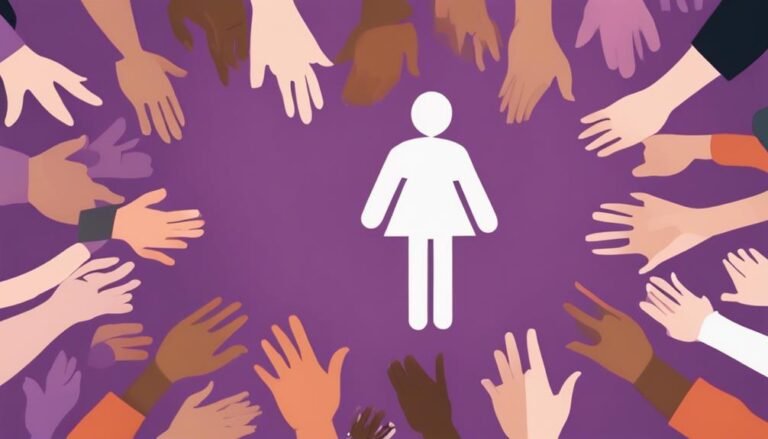To help your child’s behavior after exposure to domestic violence, start by creating a safe environment at home. Consistency in routines like stable schedules and clear boundaries can foster security and stability. Additionally, seeking counseling services can assist your child in processing emotions and learning healthy coping mechanisms. By prioritizing safety, routines, and access to counseling, you can positively impact your child’s well-being post-domestic violence. These three tips lay a strong foundation for supporting your child through challenging times.
Key Takeaways
- Establish a safe environment to minimize negative impact.
- Consistent routines provide stability and security.
- Access counseling services for trauma processing and coping.
- Safety planning at home positively shapes children’s behavior.
- Prioritize safety measures and emotional well-being post-exposure.
Establishing Safe Environments
Creating a safe environment is vital in minimizing the negative impact of domestic violence on children’s behavior.
When children are exposed to domestic violence, establishing a secure and violence-free space at home is essential for their emotional well-being.
By prioritizing safety planning and ensuring a safe environment, you can positively shape children’s behavior after experiencing domestic violence.
Consistency in routines and boundaries plays a significant role in providing a sense of stability and security for children in such circumstances.
Consistent Routines for Security
Establishing consistent routines for children impacted by domestic violence is vital in providing them with a sense of security and stability amidst challenging circumstances. Children witnessing domestic violence often face uncertainty and fear, making it important to offer them a stable environment through predictable schedules.
By implementing consistent routines, you can provide a sense of safety and structure for these children, reducing their anxiety and helping them cope with the effects of witnessing domestic abuse. Having a set daily routine can offer a sense of normalcy and control in what may otherwise be a chaotic or abusive environment.
Structured schedules for meals, bedtime, and activities create stability and comfort, giving these children a much-needed anchor in turbulent times. By prioritizing consistent routines, you can help children impacted by domestic violence feel more secure and supported, promoting their overall well-being and resilience.
Access to Counseling Services
Accessing counseling services is important for children affected by domestic violence as it provides essential support in processing trauma and developing effective coping strategies. Children who witness domestic violence often experience significant emotional distress and turmoil. Seeking help through counseling services can be a key step in their healing journey.
Professional counselors play a pivotal role in assisting child witnesses of abusive relationships in expressing their feelings and fears in a safe environment. By engaging in counseling sessions, these children have the opportunity to work through their emotions and develop healthy coping mechanisms. Research indicates that children who’ve access to counseling services are more likely to experience improved mental health and emotional well-being outcomes.
Additionally, counseling can aid in building emotional resilience and self-esteem, mitigating the long-term negative effects of domestic violence exposure. Encouraging children to utilize resources such as the Domestic Violence Hotline and seek support from trained professionals can greatly contribute to their overall well-being and recovery process.
Frequently Asked Questions
How Does Violence Affect Children’s Behavior?
Violence can deeply impact children’s behavior. It can affect emotional development, social interactions, cognitive functioning, and lead to behavioral problems. Trauma responses, attachment issues, and coping strategies can influence mental health, academic performance, and have long-term effects.
What Are the 3 Things That Make up the Cycle of Violence?
In the cycle of violence, you experience tension building, acute incidents of abuse, and reconciliation phases. This pattern impacts relationships, emotional regulation, trust issues, coping mechanisms, developmental delays, social skills, behavior patterns, self-esteem, mental health, and communication skills.
How Does Abuse Affect Children?
Abuse can deeply affect children, causing emotional trauma and long-term behavioral changes. It may lead to issues with self-esteem, trust, and social skills. Children often develop unhealthy coping mechanisms but can benefit from therapy and support systems.
Conclusion
As you navigate the complex landscape of domestic violence and its impact on children, remember that you hold the power to shape their future.
By creating safe havens, maintaining steady routines, and providing access to counseling, you’re planting seeds of resilience and healing.
Just as a gardener tends to delicate blooms, so too must you nurture the hearts and minds of these young souls.
Together, we can cultivate a brighter tomorrow.






